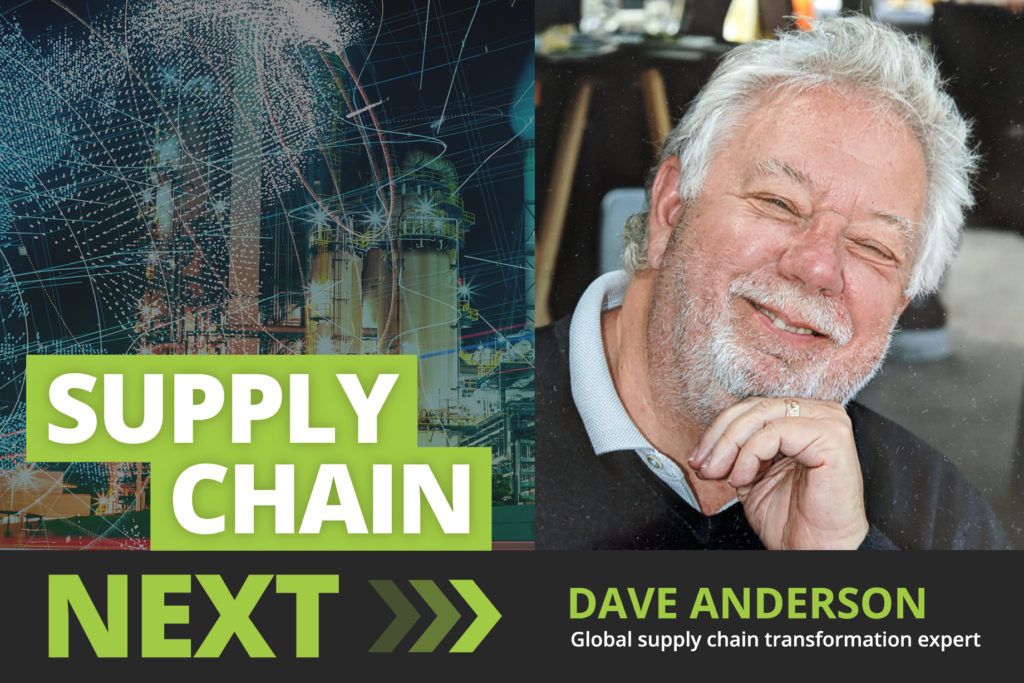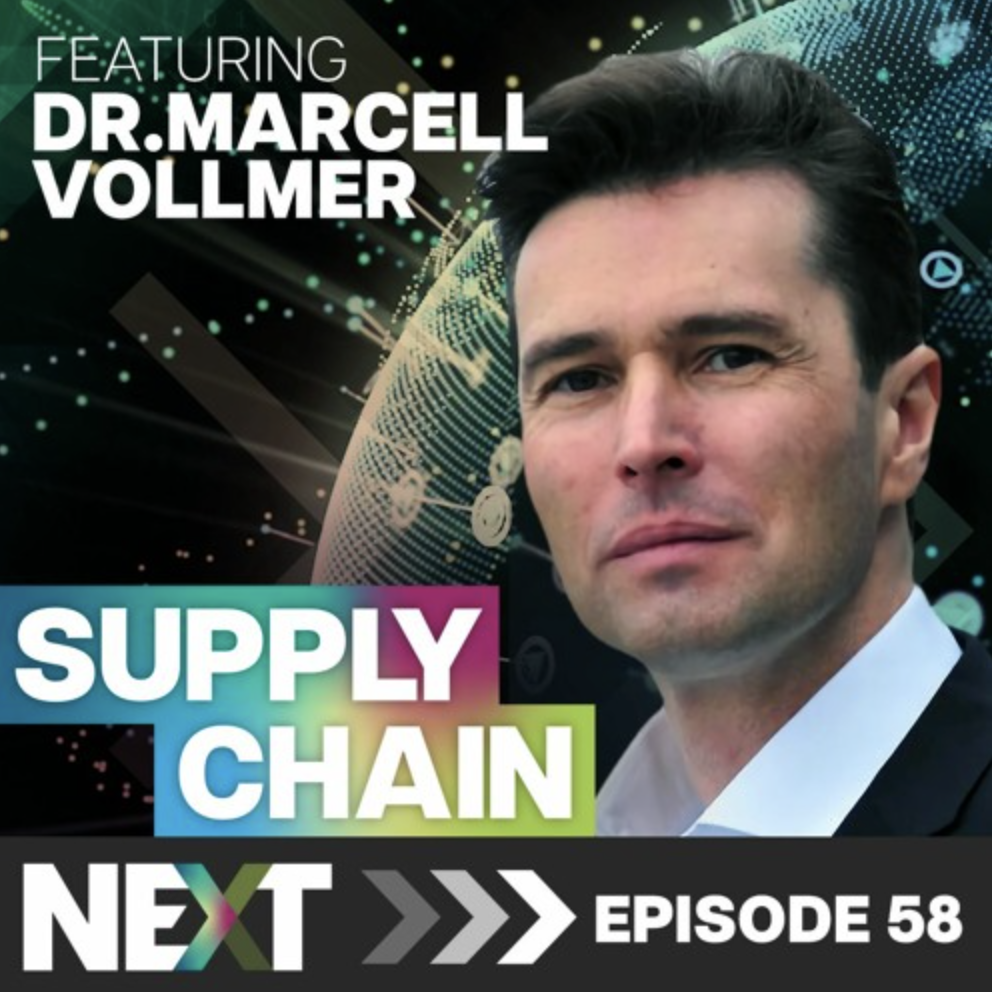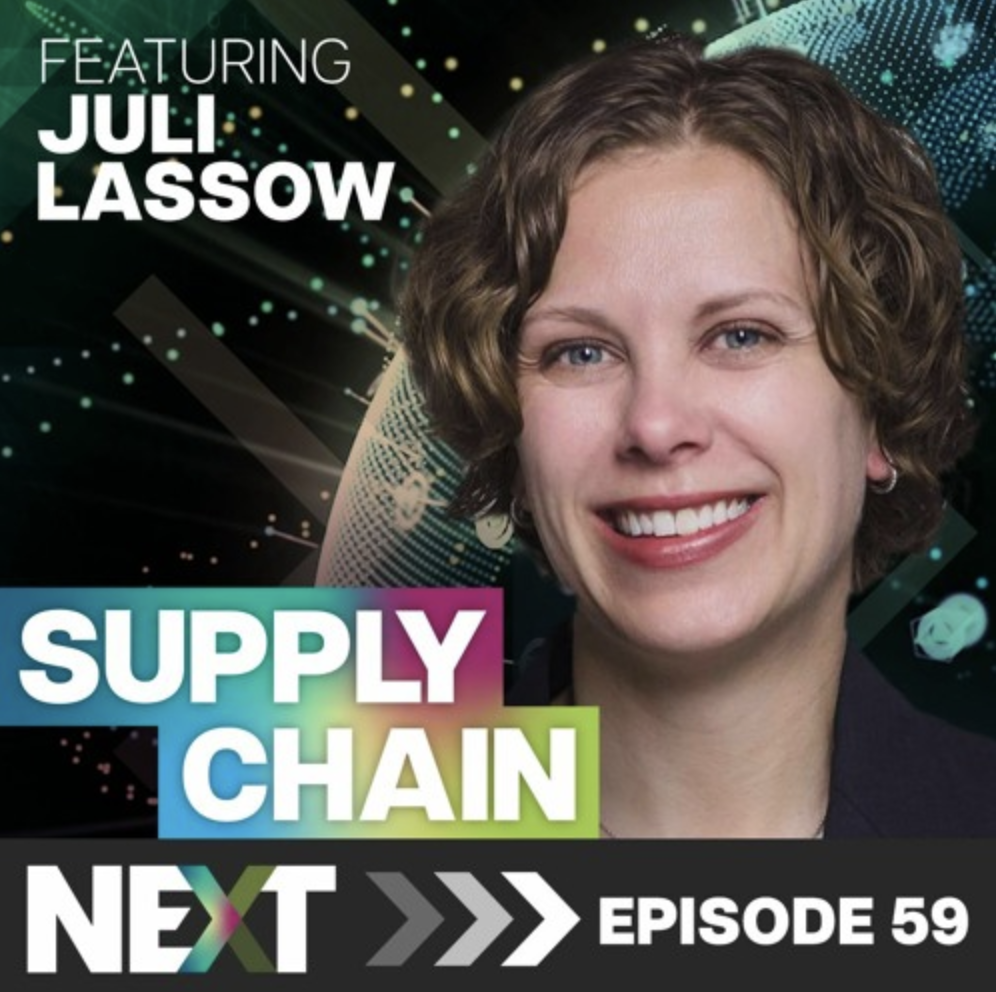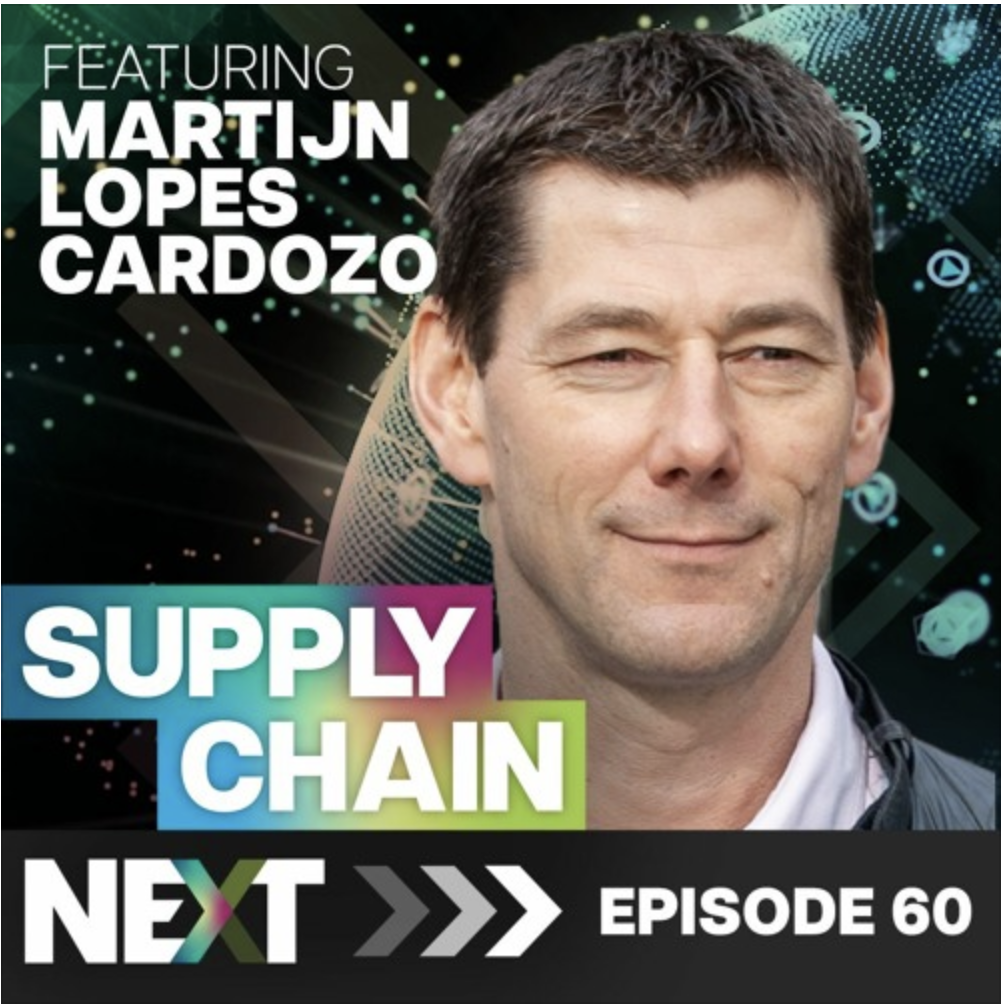Episode 3
Podcast: Dave Anderson on the Evolution and Future of Logistics
On the third episode of Supply Chain Next we speak with Dave Anderson, someone we have no trouble describing as a logistics visionary.
Throughout his career, Dave has been on the leading edge of logistics and supply chain forecasting and strategy. He has always championed the use of technology as a way to help solve issues and find efficiencies.
Dave’s career started in the 1970s with putting his PhD in Econometrics to work predicting freight volumes across shipping modes. He got into logistics consulting just as the deregulation period hit in the early 1990s, and was instrumental in developing supply chain strategies for leading global companies until he ‘retired’ from consulting in the early 2000s and went into the venture capital world.
Today, Dave and business partner Dan Dershem lead Supply Chain Ventures LLC, an early and late-stage venture capital investment fund specializing in AI enabled supply chain software and hardware. As Dave puts it, “We’re still having a hell of a lot of fun meeting young people with great ideas! We are definitely still into changing the world!”
Join host Richard Donaldson to find out more perspective and insights from Dave.

Highlights from the Conversation
Game Changers: Adapting to Freight Deregulation and Globalization
- By the early 1990s, the number of freight carriers and 3PLs expanded as companies realized that they could go beyond their own walls and use outside suppliers for transportation and warehousing.
- Globalization began to hit around the same time, and had a huge impact as companies realized it cut both ways. They had to look beyond their home markets to find customers, and be ready for outside providers to encroach on their local markets. The successful ones learned to protect what they had and ride the globalization wave.
Starting a VC Firm Post-Dot Com Bubble
- Dave and his partner Dan Dershem started Supply Chain Ventures LLC in 2002 – just after the internet investing bubble burst.
- Supply chain wasn’t a hot topic back then, and no one else seemed interested in solving supply chain issues with technology until at least five to eight years later. This was in spite of the fact that supply chain typically manages 50% to 60% of a company’s spend.
- They succeeded where others failed because they invested in companies that could create value in traditional supply chain, using tech to solve the real problems that logistics had. They weren’t trying to just replace them.
Looking at the Current Landscape – and Beyond
- Supply chain has emerged as a true competitive advantage for companies. Amazon is the poster child for this kind of change.
- The outsourcing trend continues, forcing companies to look beyond their walls for new customers, suppliers and opportunities.
- Omni-channel delivery to customers–– whatever works as quickly and easily as possible–– has emerged as a big driver, and will continue to drive a lot of what’s going on. Dave doesn’t see this trend ending; in fact, companies will have to continually evolve to meet changing customer demands.
- The emergence of real time data has made a big impact on sales and operations planning, because it’s harder to make decisions when you’re trying to determine inventory and production levels using 3-month old data, rather than real-time sell through information plus social media product reviews.
- Machine learning can play a role in finding patterns in the data. For example, we might learn that when the weather’s bad, drivers can’t do as many deliveries. Instead, we can plan for fewer deliveries to avoid irritating customers.
- There’s been a 30x jump in the emergence of new tools over the past 17 years. The innovators are still often supply chain practitioners with new ways of doing things. But now they’re mixed in with people who have no experience in supply chain but who can bring in new toolsets, like AI and robotics. In spite of all the options, there’s still tremendous resistance to change in many companies.
- Enterprises have often invested millions into legacy software and warehouse hardware they currently use, and aren’t interested in replacing them. They are however, more open to tools that sit on top of current systems and solve specific problems.
- The newly trained, tech-enabled millennials aren’t in charge of supply chain just yet – but they are going to revolutionize supply chain decision making over the next decade.
- Autonomous transportation, IoT, and blockchain are promising, but won’t be ready for a while yet.
- Supply Chain Ventures is investing in these five spaces: embedding AI in planning software, apps that identify bottlenecks, management of e-commerce returns, supply chain visibility, and apps that work on sustainability and traceability (for example, to make sure goods aren’t manufactured with slave labour).
Dave’s advice: supply chain professionals need to upgrade their skills and get comfortable working hand-in-hand with the C-suite.
Don’t miss all the insights from the full conversation.
Visit the Supply Chain Next Channel on SoundCloud >
More Episodes
You can listen to our audio tracks and read highlights for each episode below.
We’ve also started publishing video episodes on our YouTube channel.
058 – Dr Marcell Vollmer – Tech in Supply Chain, and the Sustainability Shift
Supply Chain Next · 058 – Dr Marcell Vollmer – Tech in Supply Chain, and the Sustainability Shift Meet Dr. Marcell Vollmer Dr. Marcell Vollmer, a renowned expert in the fields of digitalization, innovation, and sustainability. Marcell is a sought-after speaker and author that has dedicated his career to helping companies and individuals navigate the rapidly…
059 – Juli Lassow – Revolutionizing Retail, Sustainable Strategies, & the Future of Partnerships
Supply Chain Next · 059 – Juli Lassow – Revolutionizing Retail, Sustainable Strategies, & the Future of Partnerships Juli Lassow ,founder of JHL Solutions Meet Juli Lassow Juli Lassow, an accomplished retail professional, speaker, writer, and sustainability advocate, is the founder of JHL Solutions, a consultancy focused on creating outstanding private-label partnerships. With a deep…
060 – Martijn Lopes Cardozo – Circular Supply Chain
Supply Chain Next · 060 – Martijn Lopes Cardozo – Circular Supply Chain Martijn Lopes Cardozo, CEO at Circle Economy Meet Martijn Lopes Cardozo Martijn, a seasoned entrepreneur, has an impressive track record of establishing prosperous ventures within the realms of software, mobile, and digital media in California. Upon returning to the Netherlands, he…



